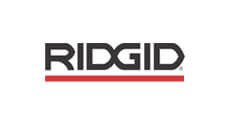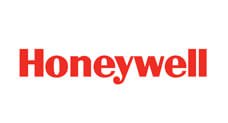Boiler Maintenance in New Jersey
Let’s face it folks, we’re not in Florida. In New Jersey we get a real winter, and our boilers can get quite the workout every year. Whether you have a single boiler in your home, or a multi-stage boiler system in multiple mechanical rooms across your campus, proper operation and maintenance of your boiler and its distribution system can save significantly on energy bills. Since many older boiler systems operate at an average efficiency of only 65 to 75%, the remainder of your heating fuel bill is either going up the stack or down the drain.
The following low-cost or no-cost items will typically pay for themselves in less than a year and are well worth the investment in time or money.
- Hire an HVAC professional to perform a detailed analysis of your heating system. The check should include analysis of firing rate, flue draft, air/fuel ratio, stack temperature, combustion air setting, flue carbon dioxide and oxygen readings, and control calibrations.
- Adjust, repair or recalibrate controls and settings as needed. If the proper air/water level is not marked on your sight glass (if present) have it marked.
-

Hopefully your boiler doesn’t look like this! Scale (mineral deposits) inside the boiler reduces the efficiency of the boiler and may lead to stress problems and leaks. Proper chemical treatment of boiler water will reduce scale build-up and control condensate water pH and corrosion potential. When the boiler is shut down, inspect for scale deposits, accumulation of sediment or boiler compounds on the water-side surfaces.
- Stack flue gas temperatures should be no more than 150° greater than the steam or water temperature. Clean and scrape fire-side tubes to remove soot and scale if the desired temperature split is exceeded. Add stack thermometer if necessary.
- Check boiler insulation, refractory, brick work, and boiler casing for hot spots and air leaks; repair and seal as necessary.
- Replace boiler door gaskets if they do not provide a tight seal.
- Proper combustion air intake ensures maximum safety as well as efficiency. Interlock combustion air intake with burner operations.
- If your boilers are large, a daily log of boiler operation may be helpful. Chart boiler pressure, temperature, CO2, O2, steam or condensate flow, and other data from the boiler. Variations from normal can indicate the need for tube and nozzle cleaning, pressure or linkage adjustments, and related air/fuel or draft adjustments.
- Small, frequent boiler blowdowns are more effective than larger, less frequent blowdowns. Schedule blowdown when needed as indicated by regular boiler water tests, rather than by a fixed schedule. Inspect nozzles or cups of oil-fired burners on a regular basis and clean if needed. Inspect oil line strainers and replace if dirty.
- Eliminate gas pilots and install intermittent ignition electric pilots.
- In steam systems, inspect steam traps on a regular basis. The inspection must be performed when the equipment is actually operating.
- Shut off equipment or steam valve, wait a few minutes and then restart. Listen to the trap to hear whether it opens and closes as expected.
- Inspect condensate tank vents. Steam plumes from the roof vents are an indication of one or more defective traps in the condensate return system.
- Use a surface pyrometer to check condensate line temperature surface downstream of trap while equipment is operating. This line should be slightly cooler than the steam line feeding the equipment. If it is lukewarm or cold, the trap is allowing condensate to pass through, probably because of a flooded float or worn out thermostatic element. If the condensate line is about the same temperature as the entering steam line, the trap is probably passing steam and should be replaced. This situation can be caused by dirt and sediment or by defective or worn valves and seals. Malfunctioning traps may be rebuilt for future use.
- You must regularly clean your radiators, the fin tube convectors, and coils. Check perimeter radiation units for blockage of air passages, by objects placed on top of or in front of radiation covers. Maintain a one-foot clearance in front of convectors, radiators or registers when possible.
- Maintain the lowest steam pressure that is adequate to meet space heating or process demands. Reduce steam pressure during low demand periods. Where high pressure steam is required for turbines or other processes which operate only a portion of the year, reduce the system steam pressure for the rest of the year. Shut down boilers when their heating function is unneeded, but don’t cut back heating levels in areas where there is a possibility that freezing damage could result. Boilers that are shut down should be properly drained and dried out to prevent the possibility of freezing or corrosion.
- Oversized boilers short-cycle and waste fuel during start-up and shut down periods. If the boiler is oversized, adjust or modify the firing rate to better match building load. Time the on and off periods of burner operation to get a better handle on cycle periods; take outside air temperature into account. For multiple-boiler plants, make sure one boiler is loaded to the maximum before a second boiler is put into service.
- When outdoor temperatures are moderate, switch boiler control to manual low-fire setting. The boiler will operate longer between cycles at a higher overall efficiency. Shut one boiler down during mild weather to improve operating efficiency.
- Tag all drained, disconnected, or idle equipment that might be unsafe or harmed by inadvertent use or operation.
- Don’t disregard safety in the interest of saving energy. Maintain adequate ventilation and combustion air. Maintain proper lighting in boiler areas and machinery spaces.
This may seem like a lot but for a qualified HVAC professional, the work can be performed efficiently and at low cost as compared to the energy savings possible.
Crosstown Plumbing is your New Jersey Boiler Maintenance Partner
Whether you have a “do-it-yourself” mindset, or you are a professional doing boiler repair and maintenance, Crosstown experts know what you are up against and can help you get it done with tools, pipes, replacement parts, and replacement boilers if necessary, all at the lowest prices in the northern New Jersey area.
Make Crosstown your first stop on your boiler maintenance checklist.








